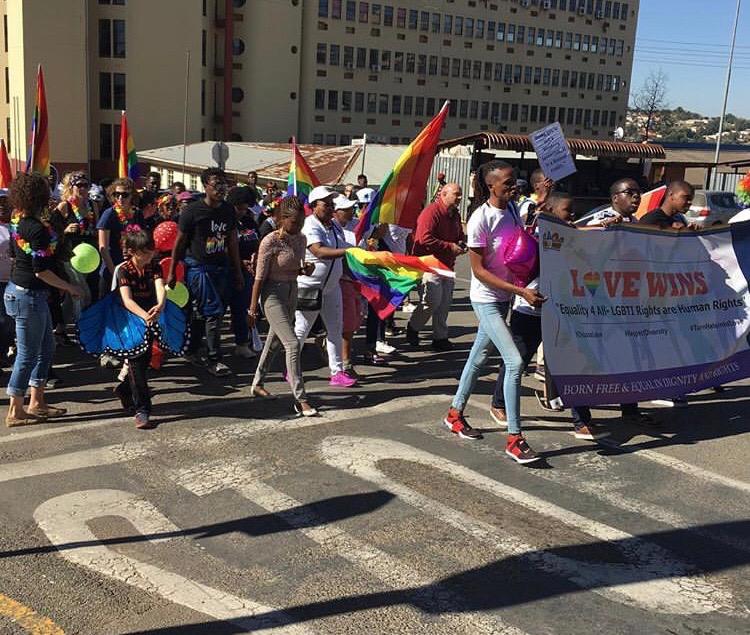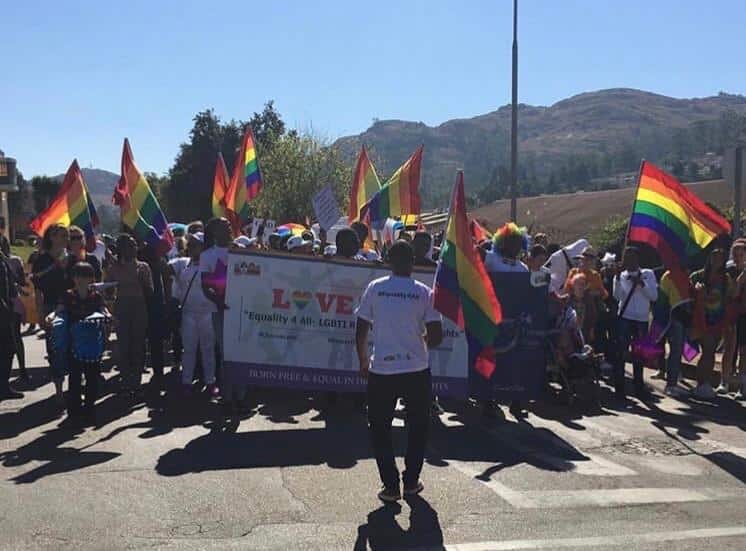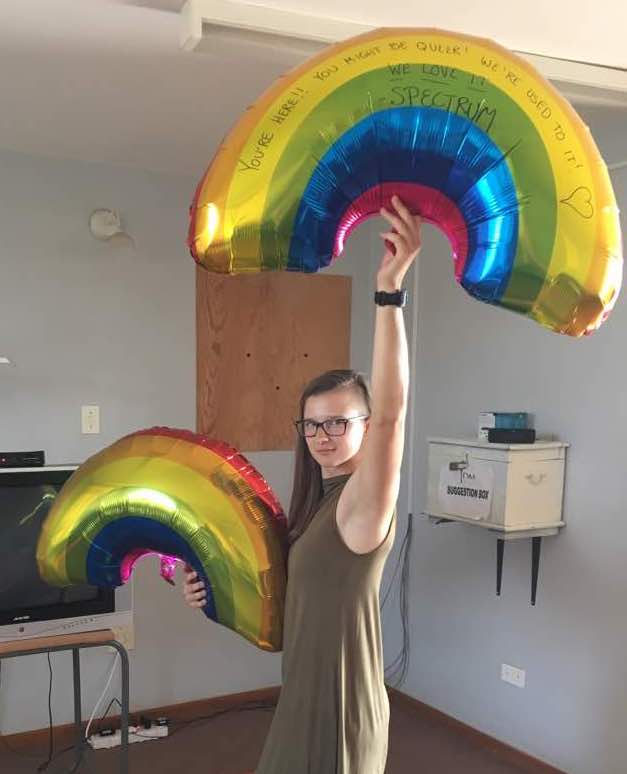The first time someone called me their daughter in Eswatini, I felt intensely grateful before a sadness descended into my chest. Knowing how much of myself I had to withhold, accepting that gift freely felt disingenuous. In this beautiful nation of hills and singing, I was swimming on display in a fishbowl. How ironic that I was also now hiding deep in a closet I thought I’d walked out of years before. Though I held mixed feelings for the acceptance I experienced throughout my journey, I would discover how powerful the phrase “my daughter” could be.
I read somewhere that the outside world could mirror your reality in eerie ways. As I was shuttering back into a “straight passing” (barely) version of myself, Eswatini was just beginning to come out. While I repressed my queer history, Swazis made history as they rolled out the first and second Pride parades ever celebrated in Eswatini — fishbowls and closets indeed. Of course, with all my efforts to conceal who I really was to my host family and counterparts, I suspected there had to be whispers of my sexuality. I mean, I did wear pants every day, something that was neither typical nor traditionally acceptable. I am grateful every day for the gracious allowances my host family made for me. I’m not sure I could have stayed if they hadn’t. Pants wearing notwithstanding, I did my best to be the model volunteer who was respectful of all customs and cultural practices and didn’t try to foist my personal beliefs or identity on those around me. But hiding often has a way of back-firing. As is the case with many LGBTQIA+ (lesbian, gay, bisexual, transgender, queer or questioning, intersex, asexual, plus) individuals, my hiding meant people felt safe to say things around me that were decidedly homophobic. It was a very confusing experience to receive what felt like unconditional love and support from a group of humans who might have changed their minds if they knew everything.
I found solace within my cohort where I couldn’t in my local community. During our pre-service training, we founded Spectrum, an affinity group formed to support and celebrate the many volunteers who identified within the LGBTQIA+ community throughout their service. We held annual retreats, online discussions (thank goodness for WhatsApp), and participated in pre-service trainings of the following cohorts. It was immensely comforting to have somewhere to take off the mask, especially as I began a relationship in country. Let me tell ya, the balancing act of nurturing a romantic relationship while making sure I remained buried in the mothballs of the closet is quite a trick, and I’m not sure we succeeded very well in either effort. But as is often the case in discomfort, you’ve got to maintain a good sense of humor. I will never forget one of my many visits to my then girlfriend’s homestead being asked very matter-of-fact if I was a boy by her 10-year-old host sister. I was so stunned I couldn’t even be offended; hats and pants were the trademarks of masculinity that not even my long braid could compensate for. Despite this, and other such occasions, we felt sure that we were concealing our relationship at least enough to avoid any actual confrontation.
Our anxiety and masking culminated one sunny day on her homestead. The clothesline, draped with t-shirts and socks, made for the perfect volleyball net, and I think we felt safe enough to just have fun for the first time in a while. Walking back across the yard carrying armfuls of laundry, I was stunned again, more stunned even than before to hear her host mother say gently and earnestly, “You are my daughter.” We instantly knew. We knew right away that the closet was gone and we were, and maybe had always been, seen as a couple. And for all my worrying, for all my hiding, I discovered that I was given a precious gift free of strings: love and acceptance.
During my time in Eswatini, I was known in vastly different ways by the various people I encountered. We exist as different people in the hearts and minds of those we touch and inspire, and those from whom we hide. I don’t know if I would change what I hid if I had it to do over, but I can say that concealing pieces of ourselves removes our ability to receive the acceptance we may seek. My task is not to be the same daughter to all, but to see myself and others with the kind eyes of a person who looked beyond my mask.





